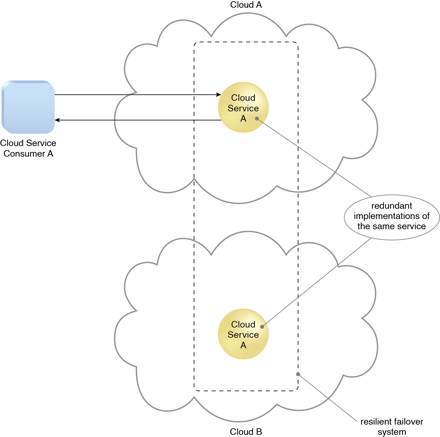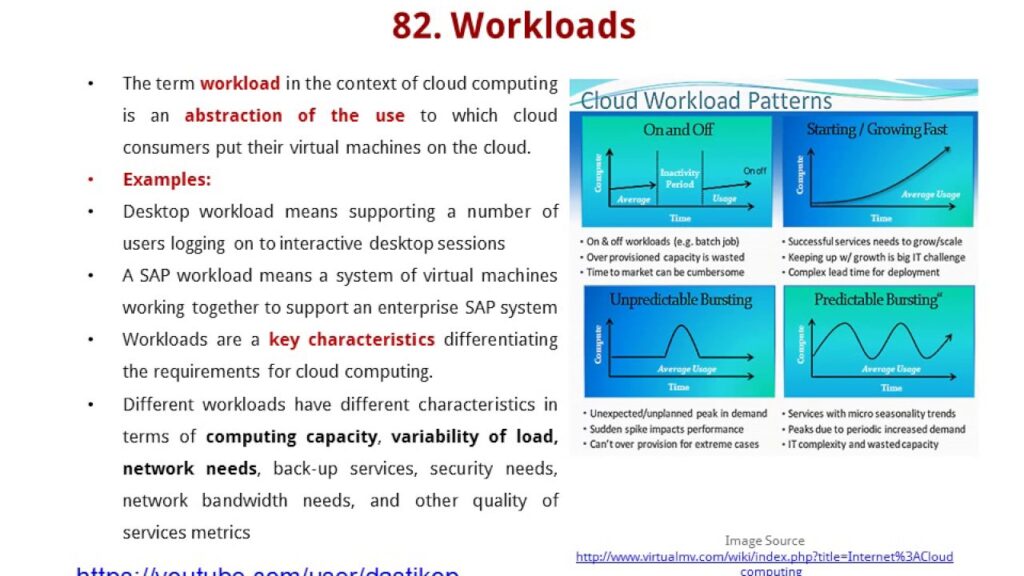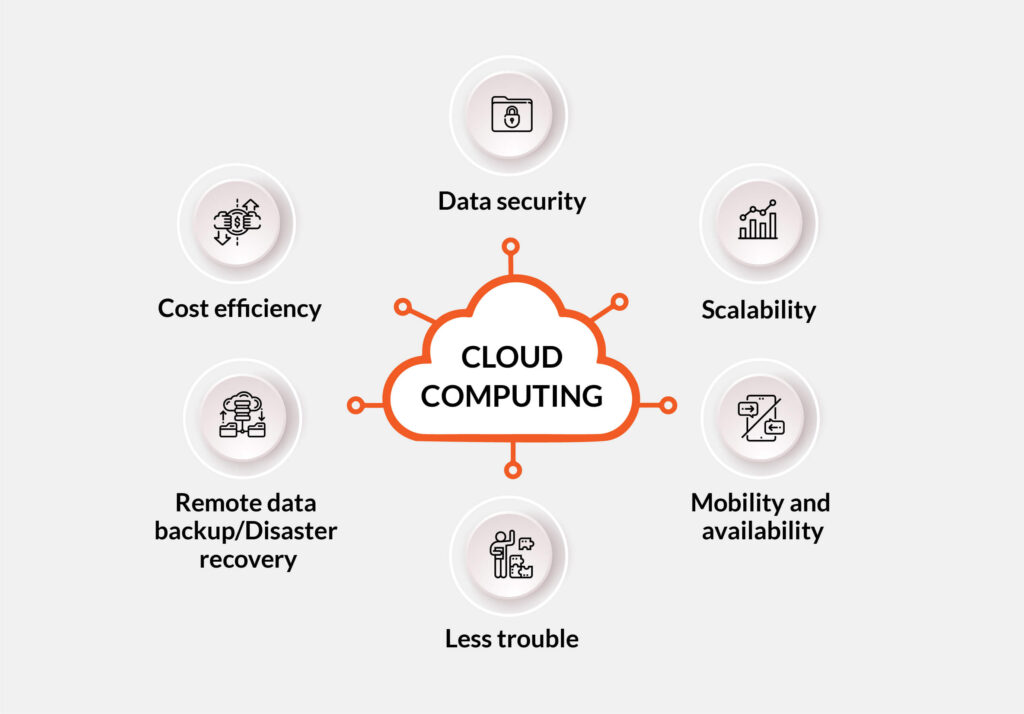Cloud computing has become an integral part of our daily lives, from storing important documents to accessing applications on the go. As we rely more and more on cloud-based services, the need for resilience in cloud computing has become increasingly crucial. In simple terms, resilience refers to a system’s ability to recover from disruptions and continue functioning even in the face of adverse events. In the context of cloud computing, resilience means the ability to withstand failures, maintain data integrity, and ensure the availability of services to users, even in the event of a disruption or outage.
In this article, we will delve deeper into the concept of resilience in cloud computing and explore the various ways in which it is implemented. We will discuss the importance of resilience in ensuring business continuity, minimizing downtime, and mitigating the impact of disruptions. We will also explore the different strategies and technologies used to achieve resilience, such as redundancy, failover mechanisms, and backup and recovery solutions. By the end of this article, you will have a better understanding of what resilience means in the context of cloud computing and how it can help ensure the reliability and availability of cloud-based services.
Resilience in cloud computing is the ability of a system to recover from service disruptions, outages, or other failures. It enables a cloud provider to provide a reliable and secure cloud environment that can quickly and efficiently respond to any disruption. Resilience in cloud computing is achieved through a combination of automated and manual processes that monitor the system for any potential issues, and take steps to resolve them as quickly as possible. This includes having redundant systems in place that can take over from the primary system if it fails, as well as having protocols in place to restore service in the event of an outage.

What Is Resilience in Cloud Computing?
Cloud computing has become an increasingly popular and efficient way to store and share data. Resilience in cloud computing refers to the ability of a cloud computing system to handle unexpected events and recover quickly from any disruption or failure. This article will explain the concept of resilience in cloud computing and the benefits it provides for businesses.
What Is Resilience?
Resilience is the capacity of a system to remain operational or recover quickly after a disruption or failure. This is especially important in cloud computing, where unexpected events can cause service interruptions and cause major data losses. Resilience helps ensure that cloud computing systems remain available and operational even during unexpected events or disruptions.
Resilience in cloud computing is achieved through a combination of hardware, software, and services that are designed to reduce the risk of service interruptions and data losses. These components include redundancy, reliability, scalability, and automated backups. Redundancy ensures that the system remains operational if any component fails. Reliability ensures the system is able to maintain a high level of performance. Scalability ensures the system can meet the demand for services, and automated backups ensure all data is backed up regularly.
What Are the Benefits of Resilience?
The benefits of resilience in cloud computing are numerous. By ensuring that the system remains operational during unexpected events or disruptions, businesses can ensure they remain productive and provide uninterrupted service to their customers. Additionally, automated backups ensure all data is backed up regularly, reducing the risk of data loss. Finally, resilience helps to ensure the system can scale to meet the demand for services, making it easier for businesses to expand their operations.
In conclusion, resilience in cloud computing is an essential component of any cloud computing system. By providing redundancy, reliability, scalability, and automated backups, cloud computing systems can remain operational even during unexpected events or disruptions. This helps to ensure businesses remain productive and provide uninterrupted service to their customers.
Frequently Asked Questions About Resilience in Cloud Computing
Resilience in cloud computing is the ability of a system to maintain its availability and performance in the face of environmental and internal threats, such as service interruptions, traffic spikes and malware attacks. The aim of resilience in cloud computing is to ensure the continuity of services and the rapid recovery of any lost data.
What is Resilience in Cloud Computing?
Resilience in cloud computing is the ability of a cloud-based system to maintain its availability and performance when faced with various environmental and internal threats. This includes service interruptions, traffic spikes, malware attacks, and other potential disruptions. The goal of resilience in cloud computing is to ensure the continuity of services, as well as the rapid recovery of any lost data.
The main benefit of resilience in cloud computing is that it allows businesses to continue operating, even in the face of a major disruption or attack. By having an effective resilience strategy in place, businesses can minimize the disruption and reduce the amount of time it takes to recover from an incident. Additionally, resilience in cloud computing can help businesses maintain their reputation, as customers will be assured that their data is safe and secure.
What Are the Benefits of Resilience in Cloud Computing?
The main benefit of resilience in cloud computing is that it allows businesses to maintain their operations even in the face of a major disruption or attack. By having an effective resilience strategy in place, businesses can minimize the disruption and reduce the amount of time it takes to recover from an incident. Additionally, resilience in cloud computing can help businesses maintain their reputation, as customers will be assured that their data is safe and secure.
Another benefit of resilience in cloud computing is that it can help businesses save on costs. By having an effective resilience strategy in place, businesses can avoid the need for costly downtime, which can be extremely expensive. Furthermore, resilience in cloud computing can help businesses maintain compliance with regulations, as it can ensure that data is protected and that any potential risks are mitigated.
How Does Resilience in Cloud Computing Work?
Resilience in cloud computing works by having a comprehensive and comprehensive strategy in place that can help businesses protect their systems from a variety of potential threats. This includes having strong security measures in place, such as firewalls, intrusion detection systems, and antivirus software. Additionally, businesses should also have a disaster recovery plan in place, which outlines the steps to be taken in the event of a major incident.
In addition to these security measures, businesses should also have a solid backup plan in place. This includes having multiple backups of all data and applications, as well as having a reliable cloud-based backup system in place. Additionally, businesses should also have a business continuity plan in place, which outlines the steps to be taken to ensure the continuity of operations in the event of a major incident.
What Are the Challenges of Resilience in Cloud Computing?
The main challenge of resilience in cloud computing is the complexity of the systems and the difficulty of managing them. As cloud-based systems can be complex and can involve a variety of different services and platforms, it can be difficult to maintain a comprehensive and effective resilience strategy. Additionally, due to the complexity of the systems, it can be difficult to ensure that all data is backed up and that any potential risks are mitigated.
Finally, another challenge of resilience in cloud computing is the cost. As many of the services and platforms involved can be expensive, it can be difficult for businesses to maintain an effective resilience strategy without incurring significant costs. Additionally, as the technology is continuously evolving, businesses may need to frequently update their resilience strategies in order to keep up with the latest developments.
How Can Businesses Implement Resilience in Cloud Computing?
Businesses can implement resilience in cloud computing by having a comprehensive and effective strategy in place. This should include having strong security measures in place, such as firewalls, intrusion detection systems, and antivirus software. Additionally, businesses should also have a disaster recovery plan in place, which outlines the steps to be taken in the event of a major incident.
In addition to these security measures, businesses should also have a solid backup plan in place. This includes having multiple backups of all data and applications, as well as having a reliable cloud-based backup system in place. Additionally, businesses should also have a business continuity plan in place, which outlines the steps to be taken to ensure the continuity of operations in the event of a major incident. Finally, businesses should ensure that their systems are regularly monitored and updated in order to ensure that they remain secure and resilient.
In conclusion, resilience in cloud computing is an essential aspect that cannot be overlooked. It refers to the ability of a cloud computing system to recover quickly from any failure or disruption without experiencing any significant downtime. The resilience of a cloud computing system is critical as it ensures that businesses and organizations can continue to operate seamlessly, even in the face of unexpected challenges.
In a world where technology is continually advancing, the importance of resilience in cloud computing cannot be overstated. As more businesses and organizations continue to adopt cloud computing, there is a need for them to ensure that their systems are resilient enough to withstand any disruptions that may occur. By investing in resilient cloud computing systems, businesses and organizations can guarantee that their operations will not be affected by any unforeseen events, which can ultimately lead to increased productivity, efficiency, and profitability. Therefore, it is essential for businesses and organizations to prioritize resilience in their cloud computing systems to ensure that they remain competitive in today’s digital age.




